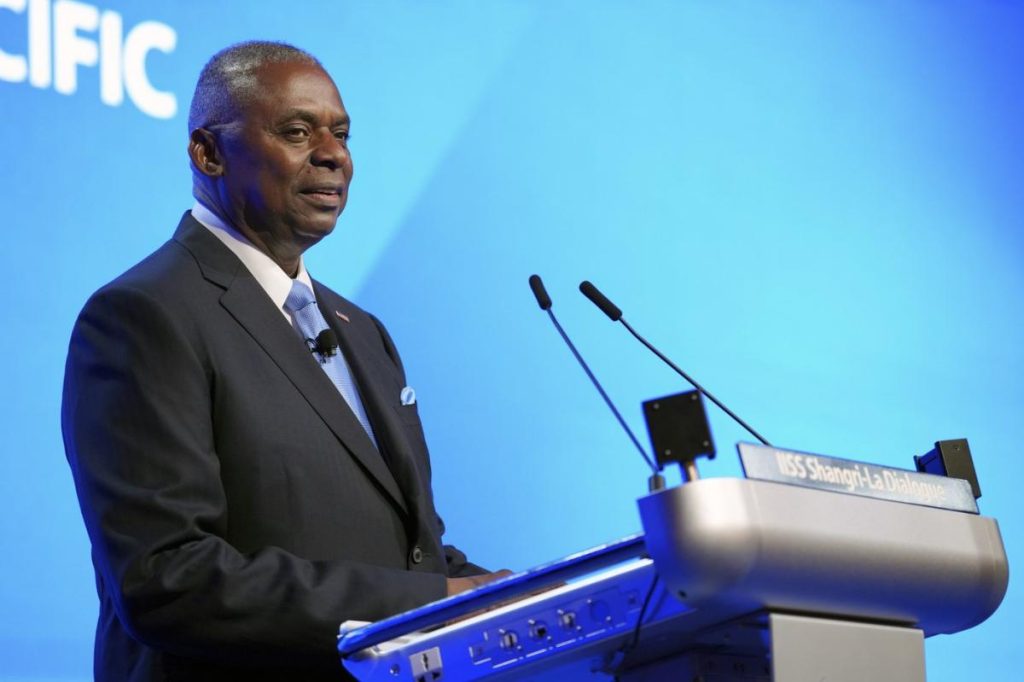Secretary of Defense Lloyd Austin reassured officials at the Shangri-La defense forum in Singapore that war with China was not imminent or unavoidable, emphasizing the importance of dialogue in preventing misunderstandings. The meeting followed a conversation between Austin and Chinese Defense Minister Dong Jun, where positions on Taiwan and the South China Sea were reiterated but conversation was restarted. Philippine President Ferdinand Marcos Jr. warned that a confrontation with China in the South China Sea could escalate to war, highlighting the importance of international support for the Philippines.
Beijing’s increasing naval assertiveness in the South China Sea has raised tensions in the region, with incidents involving Philippine and Australian vessels being cited as examples of Chinese aggression. The U.S. has been conducting military exercises in the area to promote freedom of navigation, in line with its Indo-Pacific strategy. Questions were raised about whether the U.S. is creating an Asian version of NATO through its alliances, potentially leading to conflict with China. Austin denied this claim, emphasizing cooperation with like-minded countries and rejecting the Ukrainian crisis as a result of NATO expansion.
Indonesian academic Dewi Fortuna Anwar expressed concerns about the impact of growing U.S.-China dialogue on the region’s stability, questioning whether China’s military assertiveness would be contested. Austin reiterated the importance of dialogue in addressing issues while ensuring the protection of nations in the region and their access to exclusive economic zones. He stressed the need for continued communication between leaders to reduce misunderstandings and miscalculations, without ruling out the possibility of unhappy conversations but emphasizing the importance of supporting allies and partners in the region.
The U.S. commitment to its treaty partners in the region, including the Philippines, was described as ‘ironclad’ by Austin, while also highlighting the need to avoid unnecessary escalations. The U.S. has been collaborating with allies in the region to manage strategic risks and uphold the principles of a free and open Indo-Pacific. Austin acknowledged the complex geopolitical dynamics in the region and the need for proactive measures to prevent conflicts. The focus on dialogue and cooperation with like-minded countries was emphasized as a key strategy for reducing tensions and ensuring regional stability.
Austin’s remarks signaled a cautious approach to managing tensions with China, underscoring the importance of dialogue and cooperation while also indicating a commitment to defending the interests of allies in the region. The need to prevent misunderstandings and miscalculations through continued communication between leaders was highlighted as a crucial aspect of reducing the risk of conflict. The complex geopolitical landscape in the Asia-Pacific region, characterized by competing territorial claims and military assertiveness, requires a nuanced and proactive approach to maintaining stability and security.


